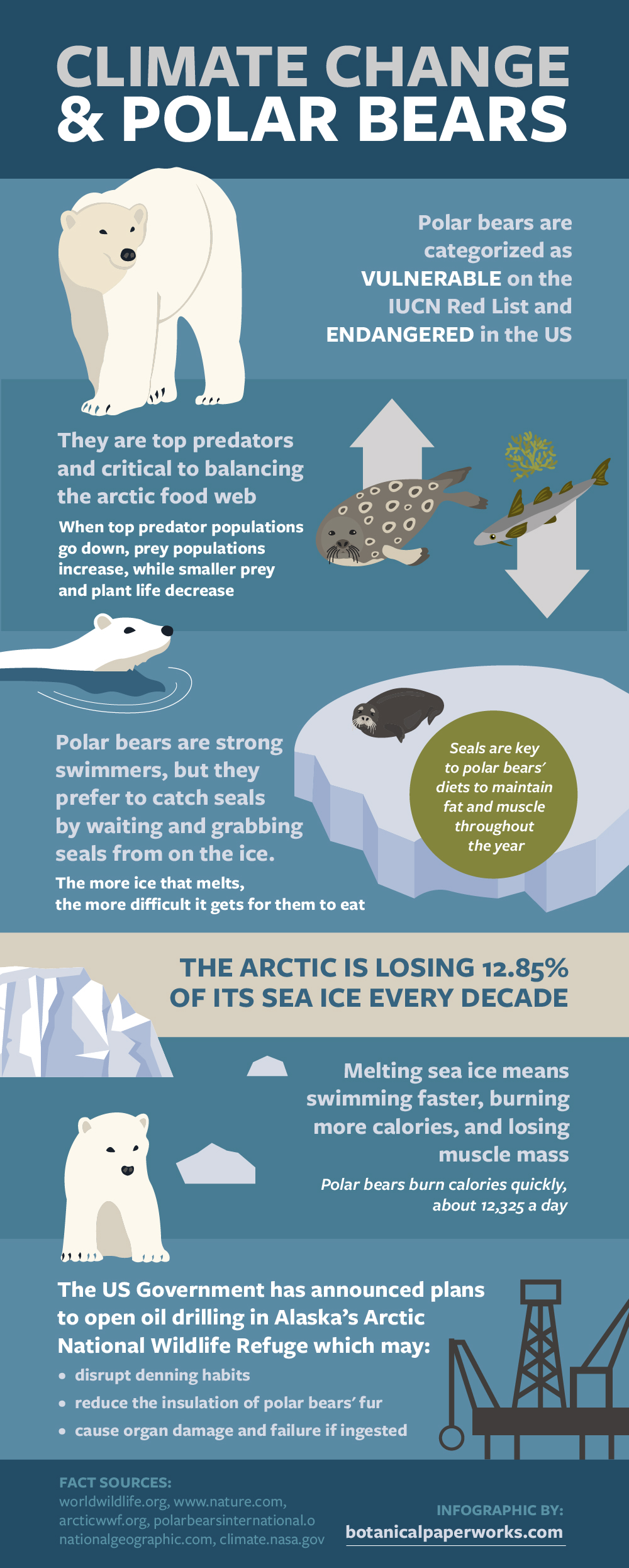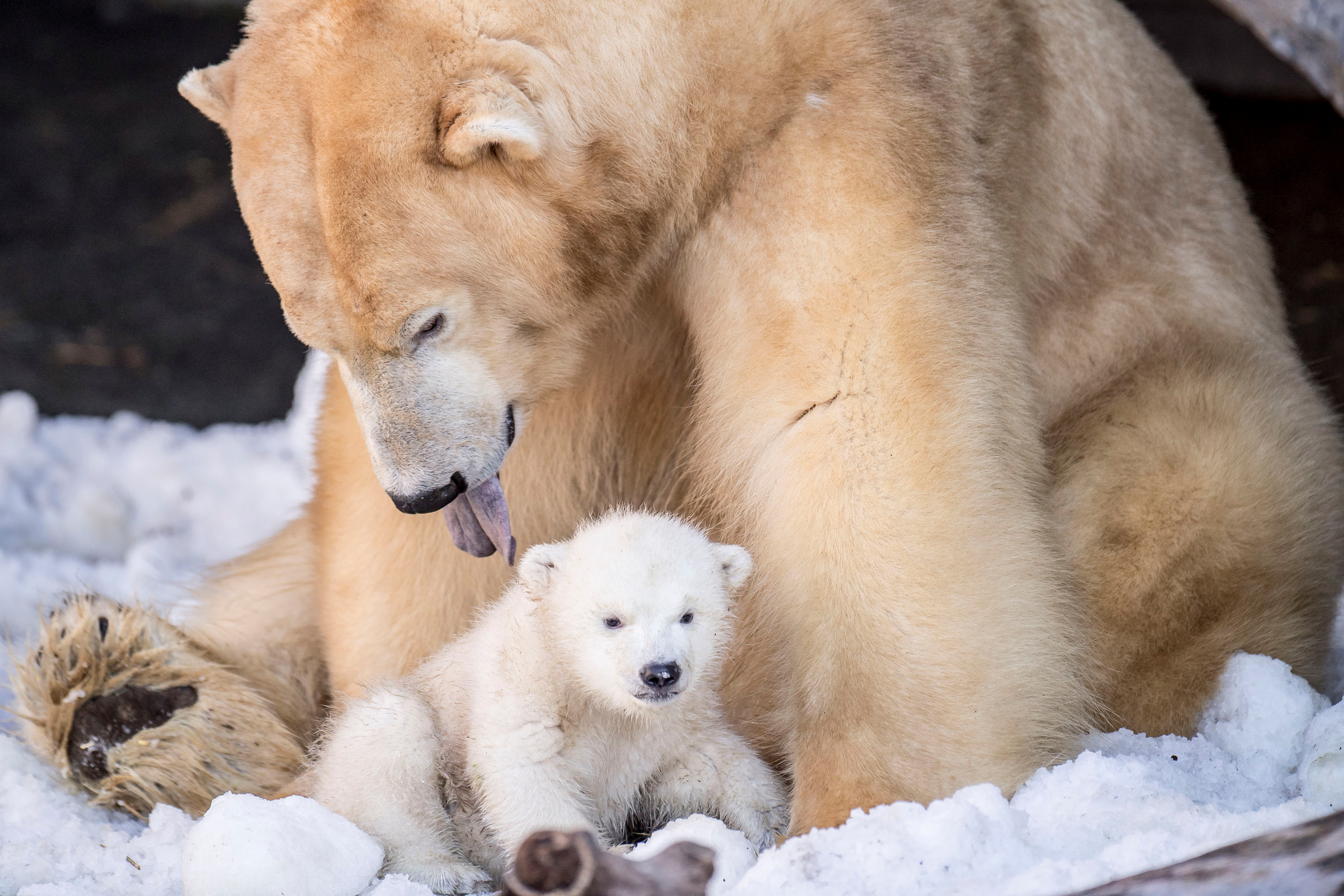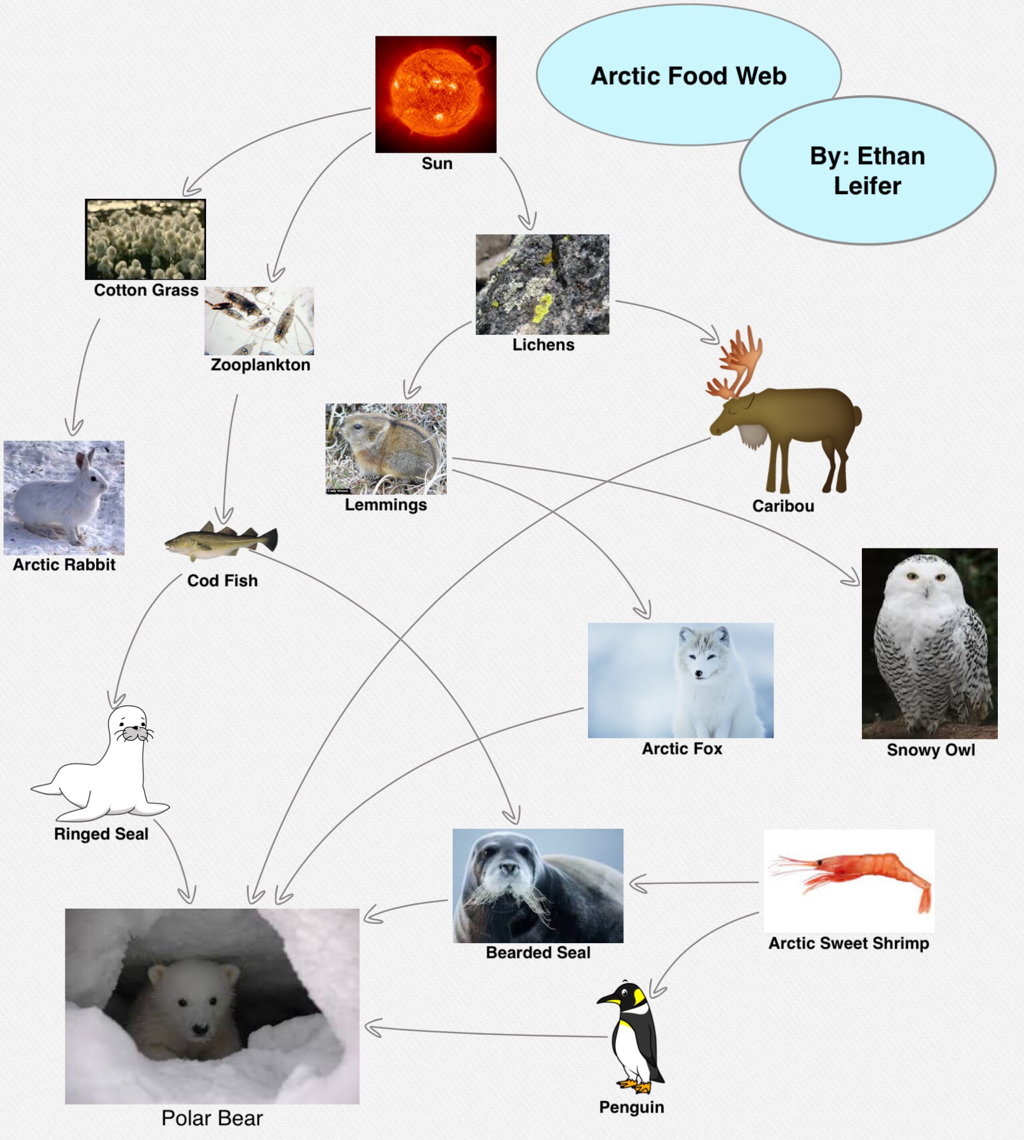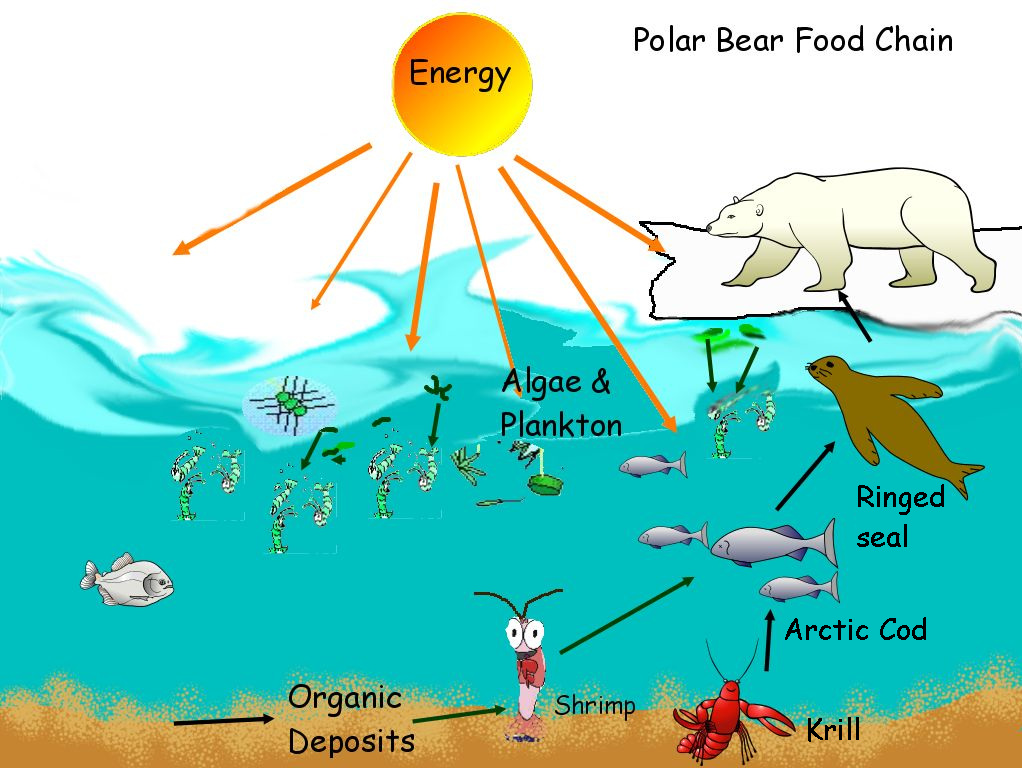New Polar Bear Scavenger Hunt Ellsworth Public Library

Facts About Polar Bears & Arctic Conservation for International Polar
Introduction. Polar bears (Ursus maritimus) are apex predators in a food web situated in a rapidly changing environment.Increasing global temperatures are causing precipitous circumpolar reduction in sea ice extent, with the magnitude of the effects in the Canadian Arctic Archipelago (CAA) increasing over the last two decades (Howell et al., 2016, IPCC, 2019, Noël et al., 2018).

Arctic Food Web Food web, Food webs projects, Polar bear food chain
When you're at the top of the food chain, you can afford to be picky. But polar bears will actually eat just about anything they can catch. Their preferred meal, however, is seal - specifically ringed seals and bearded seals. On the sea ice, they eat young walruses, Greenland seals, hooded seals, beluga whales, and narwhals.

Download Polar Bear, Bear, White Bear. RoyaltyFree Vector Graphic
they will create food web models to visually represent the relationships that form between species through the movement of energy (food). At the conclusion of this activity, students will be able to answer the key. Polar bear stretching on an ice floe, Svalbard, Norway.

Polar Bears May Have Quadrupled In Number Despite Melting Arctic Ice
The polar food chain is one of the main food chains in the Arctic food web. In this food chain, the polar bear is the apex predator, occupying the top trophic level. What do polar bears eat for food?

Polar Bear Food Web Polar bears
The polar bear's food web may be expanding, but experts like Amstrup see the bear's behavior as an expression of desperation, the equivalent of a polar explorer eating his shoes. Fat is the key.

Polar Bears’ Plastic Diets Are a Growing Problem Hakai Magazine
of polar bear bone collagen δ15N values. Discussion The comparison of modern and archaeological polar bear bone collagen isotopic compositions indicates that there has been a recent shift in the Lancaster Sound food web, with modern polar bears presenting significantly lower δ13C values than ancient bears from any period. The lower

Meals without seals How polar bears will have to adapt to life on land
Polar bears largely eat ringed and bearded seals, but depending upon their location, they may eat harp, hooded and ribbon seal. A 121-pound seal can provide 8 days worth of energy - but the bear needs to eat much more in order to store up reserves. When there are plenty of seals, adult polar bears only eat the fat, leaving the carcass for.

Polar Bears on emaze
A polar bear's stomach can hold an estimated 15% to 20% of its body weight. A polar bear generally eats this much only when its energy demands are high. A bear can assimilate 84% of the protein and 97% of the fat it eats. Polar bears need an average of 2 kg (4.4 lb.) of fat per day to obtain enough energy to survive.

The Impact of Global Boiling on Polar Bears
Understanding the Arctic Food Web. The polar regions, the Arctic especially, are very intricate and vulnerable as an ecosystem.. and the ringed seal. The last one is most abundant in the Arctic and represents a polar bear's favorite prey. Seals are very ice-dependent and use their sharp claws to maintain breathing holes in the ice.

New Polar Bear Scavenger Hunt Ellsworth Public Library
Recent population data suggest that polar bears with the most specialized diets may be most vulnerable to climate-related changes in ice conditions. The results of this large-scale, ecosystem-based study indicate a complex relationship between sea-ice conditions, prey population dynamics, and polar bear foraging.

Climate change will scramble polar bears' diets and eggs aren’t the
Whales . While polar bears rule the ice, it's the whales that sit at the top of the Arctic's marine food web. There are 17 different whales species - including dolphins and porpoises - that can be.

Arctic food chain diagram concept Royalty Free Vector Image
Polar bears are an integral part of the Arctic ecosystem and the food web for Indigenous peoples who have hunted polar bears sustainably for millennia. But beginning in the 1700s, large-scale hunting by European, Russian and North American hunters and trappers took place, raising concerns about the future survival of polar bears.

Polar bear walrus Black and White Stock Photos & Images Alamy
Arctic Food Webs. Across the expanse of sea ice, you see a polar bear, standing perfectly still, staring down. She looks surprisingly yellow, in contrast to the brilliant white snow and ice around her. While you may not think there are any other organisms nearby, there are. This tiny Arctic cod uses antifreeze proteins in its blood to survive.

Image result for polar bear food web Polar bear food, Polar bear food
Arctic food webs are characterized by a diverse array of species, ranging from microscopic phytoplankton to iconic predators like polar bears and orcas. The interconnections within this web reflect the intricate relationships that sustain life in the Arctic region. The reliance on sea ice, primary producers like phytoplankton, and the cascading.

Menu of Polar Bear, Malleshwaram, Bangalore Dineout discovery
The polar bears were all from the Lancaster Sound sub-population and spanned the last 4,000 years. We acquired samples of modern polar bear (1998-2007) obtained through hunting and we were able to.

image of polar bear, Stock Photo, Picture And Low Budget Royalty Free
In areas where diets did show year-to-year variability, polar bear foraging may have been affected by large-scale food web processes. The similarity of interannual trends in the Northern and Southern Beaufort Sea ( Fig. 11 ) suggests that these changes were related to larger ecological shifts, especially between 2000 and 2004.